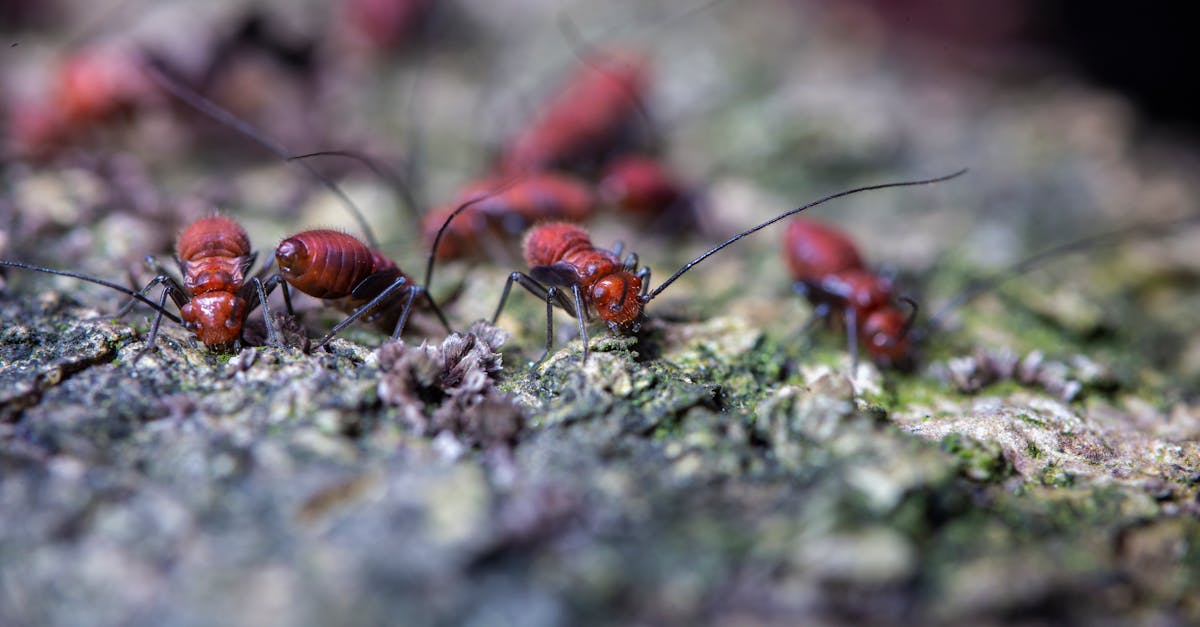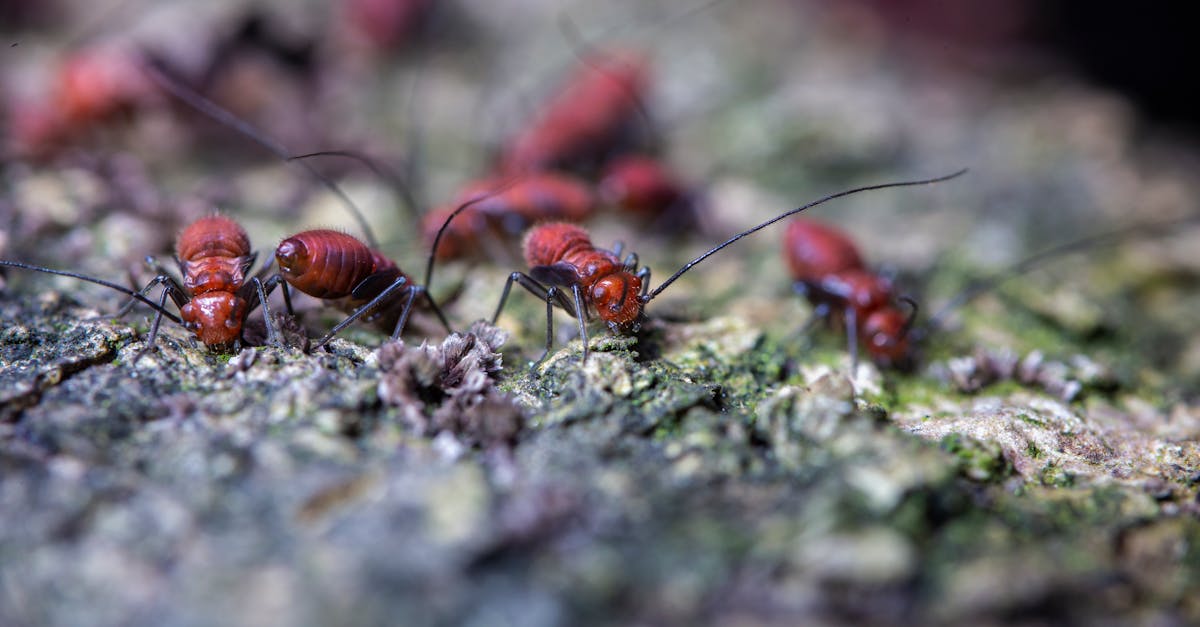Welcome to the World of Ant-Keeping 🐜
Ever wonder why some people choose to keep ants as pets? If you’re like me, you might have thought this was a bit strange at first. But let me tell you, there’s a whole fascinating world beneath our feet that many of us overlook. Now that I think about it, keeping ants as pets could be the perfect solution for those of us leading busy lives. Imagine if you could have a pet that requires minimal maintenance, provides endless entertainment, and offers a unique glimpse into the wonders of nature. Well, ants might just be that pet.
In my own life, I’ve found that traditional pets like dogs and cats demand a lot of time and attention. As someone who’s constantly on the go, I needed a pet that could fit into my hectic schedule. That’s when I stumbled upon the idea of keeping ants. What’s fascinating is how these tiny creatures can teach us so much about teamwork, resilience, and the natural world. So, if you’re like me and are looking for an ideal pet that aligns with a busy lifestyle, let’s dive into the world of ant-keeping.
The Low-Maintenance Joy of Ant-Keeping
Why Ants Are Perfect for Busy People
When I first considered keeping ants, I was just thinking about how much time I could save on pet care. It’s no surprise that traditional pets require daily feeding, exercise, and attention. But ants? They’re incredibly self-sufficient. Speaking from experience, I’ve learned that ants only need a few basic things to thrive: a suitable habitat, food, water, and occasional maintenance.
Here’s a quick breakdown of why ants are so low-maintenance:
- Minimal Feeding: Ants don’t require daily feeding. Depending on the species, they might need food every few days or even weekly.
- Self-Sustaining Colonies: Ants work together to care for their colony, meaning you don’t have to worry about individual care.
- Simple Habitat Needs: A basic ant farm or formicarium is all you need to house them.
- Low Cost: Ants and their habitats are relatively inexpensive compared to other pets.
Setting Up Your Ant Habitat 🏡
Now you know that ants are low-maintenance, but setting up their habitat is equally simple. I’ve often wondered how such small creatures can live in such complex structures. It’s interesting that you can recreate their natural environment with just a few materials. Here’s how you can get started:
- Choose Your Ant Species: Different species have different needs. Some popular choices include harvester ants, carpenter ants, and leafcutter ants.
- Get a Formicarium: This is an ant farm designed to mimic their natural habitat. You can buy one online or make your own.
- Provide Food and Water: Ants need a balanced diet. You can feed them a mix of honey, sugar water, and protein sources like insects.
- Maintain the Habitat: Keep the formicarium clean and ensure there’s enough moisture.
The Benefits of Ant-Keeping
Personally, I’ve found that keeping ants offers several benefits beyond their low maintenance. It’s clear that these tiny creatures can provide a lot of joy and educational value. Here are some of the advantages:
- Educational Experience: Watching ants can teach you about biology, ecology, and social behaviour.
- Stress Relief: Observing their activities can be surprisingly calming.
- Unique Conversations: Ant-keeping is a great conversation starter and can make you the centre of attention at social gatherings.
- Connection to Nature: It’s a way to stay connected to the natural world, even if you live in an urban environment.
The Fascinating World of Ant Behaviour
The Complex Social Structure of Ants
What’s fascinating is how ants operate within a highly organised social structure. I couldn’t help but notice the parallels between ant colonies and human societies. Each ant has a specific role, and they work together seamlessly to ensure the survival of their colony. Here are some key roles within an ant colony:
- Queen: The queen’s primary role is to lay eggs. She’s the heart of the colony.
- Workers: These ants take care of the queen’s eggs, forage for food, and maintain the nest.
- Soldiers: These ants protect the colony from threats.
Communication and Cooperation
It’s safe to say that ants are masters of communication. They use pheromones to send signals to each other, which helps them coordinate complex tasks. I’ve been there, watching ants form a trail to a food source, and it’s nothing short of mesmerizing. This level of cooperation is something we can all learn from.
Problem-Solving Skills
Ants are also excellent problem solvers. I’ve noticed that when faced with obstacles, they quickly find ways to overcome them. Whether it’s finding a new route to food or defending their nest, ants are incredibly resourceful. This might sound strange, but observing their problem-solving skills can be quite inspiring.
The Lifespan and Lifecycle of Ants
Ever wonder why ants seem to live forever? In reality, their lifespan varies depending on their role and species. Here’s a quick overview:
- Queen: Can live for several years, sometimes up to a decade.
- Workers: Typically live for a few months to a year.
- Soldiers: Their lifespan is similar to that of workers.
Understanding their lifecycle can give you a deeper appreciation for these tiny creatures. It goes to show that even the smallest beings have complex and meaningful lives.
The Joy of Observing Ants
A Window into Nature
Imagine if you could have a window into the natural world right in your living room. That’s what an ant farm offers. I’ve often wondered how much we miss by not paying attention to the small things. Keeping ants allows you to observe nature’s intricacies up close. It’s a constant reminder of the beauty and complexity of life.
Stress Relief and Mindfulness
In my own life, I’ve found that watching ants can be a form of stress relief. It’s interesting that something so simple can have such a calming effect. Picture this: after a long, hectic day, you sit down with a cup of tea and watch your ants go about their business. It’s a form of mindfulness that helps you disconnect from the chaos of daily life.
Educational Value for Kids and Adults Alike
If you have children, ant-keeping can be an excellent educational tool. It’s worth mentioning that kids can learn a lot about biology, ecology, and teamwork by observing ants. But it’s not just for kids; adults can also gain a deeper understanding of the natural world. I’d like to share a story about my nephew, who became fascinated with ants after visiting my home. He started asking questions, reading books, and even created his own mini ant farm. It was a joy to see his curiosity and enthusiasm.
Overcoming Common Challenges in Ant-Keeping
Addressing Initial Hesitations
I’ve been meaning to address some common concerns people have about keeping ants. If you’re new to this, you might have questions like, “Will they escape?” or “Is it safe?” Let me tell you, these are valid concerns but easily manageable.
- Escape Prevention: Most formicariums are designed to prevent escapes. Regular maintenance and proper sealing can keep your ants safely contained.
- Safety: Ants are generally safe to keep, but it’s essential to choose a non-aggressive species, especially if you have young children or pets.
Dealing with Common Issues
Like any pet, ants can face issues that require your attention. Here are some common problems and how to solve them:
- Mould Growth: Keep the habitat clean and ensure proper ventilation to prevent mould.
- Food Spoilage: Remove uneaten food regularly to avoid attracting pests.
- Humidity Levels: Different species require different humidity levels. Use a hygrometer to monitor and adjust as needed.
When Things Don’t Go as Planned
Looking back, I’ve had my share of challenges with ant-keeping. There were times when I worried about the health of my colony or struggled to maintain the right conditions. But each challenge was a learning experience. Speaking from experience, patience and observation are key. If you encounter issues, don’t hesitate to seek advice from online forums or local experts.
Taking the Plunge: How to Start Your Ant-Keeping Journey
Choosing the Right Species
If you’re convinced that ant-keeping is for you, the first step is to choose the right species. I’ve found that some species are more beginner-friendly than others. Here are a few recommendations:
- Harvester Ants: Easy to care for and fascinating to watch.
- Carpenter Ants: Larger in size, making them easier to observe.
- Leafcutter Ants: Require more care but offer a unique experience.
Gathering Supplies
Once you’ve chosen your species, it’s time to gather supplies. Here’s a checklist to get you started:
- Formicarium: Choose one that suits your chosen species.
- Food and Water: Research the dietary needs of your ants.
- Cleaning Supplies: Keep the habitat clean to ensure the health of your colony.
- Monitoring Tools: Use a hygrometer and thermometer to maintain optimal conditions.
Starting Your Colony
Starting your colony can be an exciting process. I was just thinking about the first time I introduced ants to their new home. It’s a moment filled with anticipation and wonder. Here’s how to do it:
- Prepare the Habitat: Ensure the formicarium is clean and ready.
- Introduce the Ants: Gently transfer them to their new home.
- Monitor and Adjust: Keep an eye on the colony and make adjustments as needed.
Enjoying the Journey
Now that you’ve started your ant-keeping journey, it’s time to enjoy the experience. It’s safe to say that you’ll find joy and fascination in observing your ants. Remember, it’s not just about having a pet; it’s about connecting with nature and learning from these incredible creatures.
Wrapping Up: The Ant-Keeping Adventure
Reflecting on the Journey
Looking back, my experience with ant-keeping has been nothing short of amazing. I’ve learned that these tiny creatures have so much to teach us about life, cooperation, and resilience. If I had to guess, I’d say that many of you reading this are now intrigued by the idea of keeping ants.
Taking the Next Step
If you’re ready to start your own ant-keeping adventure, I encourage you to take the plunge. Whether you’re a busy professional, a parent looking for an educational activity, or someone seeking a unique hobby, ant-keeping offers something for everyone. It goes to show that sometimes, the most unexpected pets can bring the most joy.
Final Thoughts
As I see it, ants are the perfect pets for busy people. They require minimal maintenance, offer endless fascination, and provide a unique connection to the natural world. So why not give it a try? You might just find that these tiny creatures bring a big dose of joy into your life.
Thank you for joining me on this journey into the world of ant-keeping. I hope you found it as fascinating and inspiring as I have. Now you know that even the smallest creatures can make the best companions. Happy ant-keeping! 🐜










